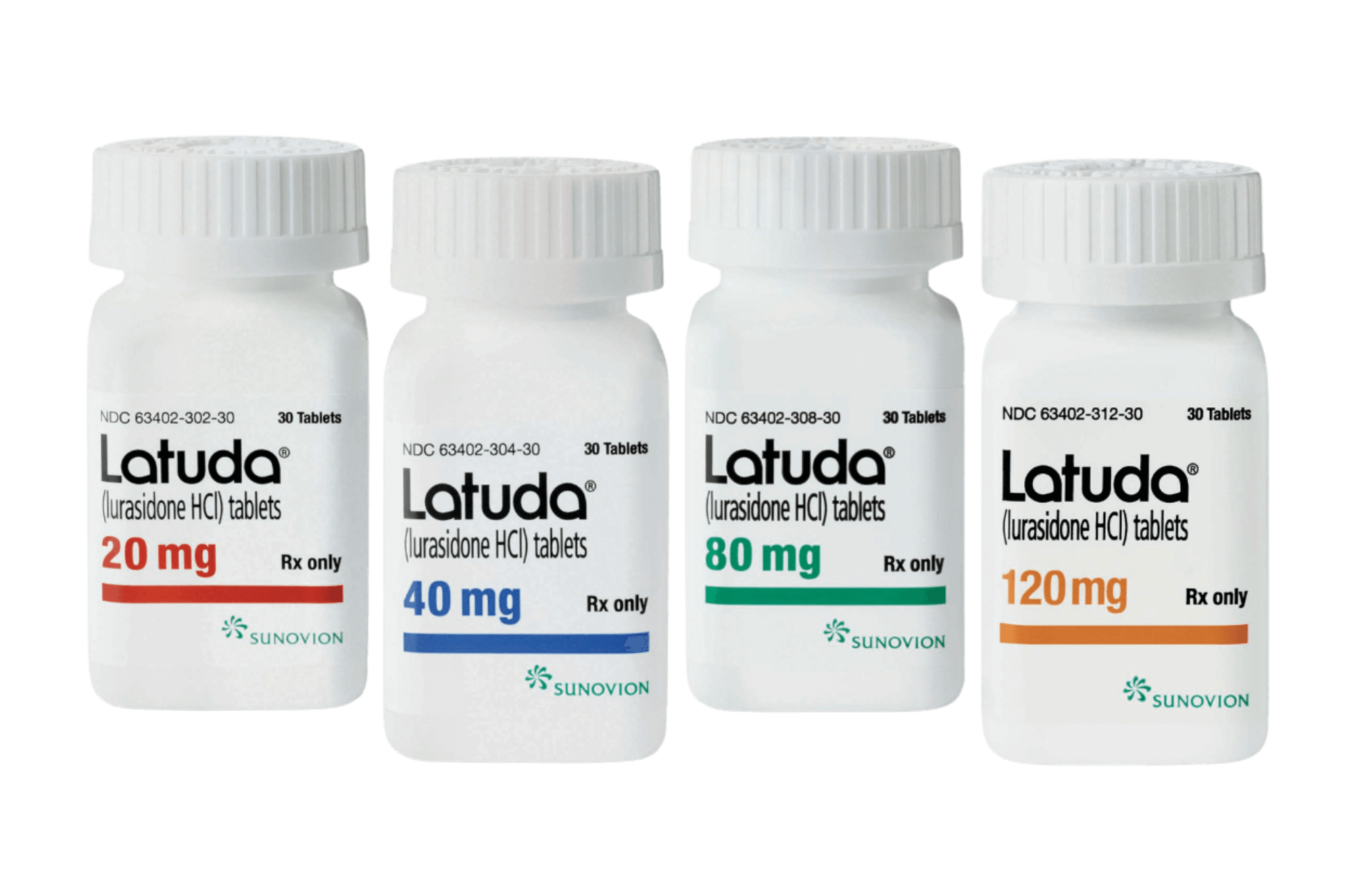This text is for informational purposes only. Please consult a doctor or pharmacist before using any medication.
Read the information leaflet that comes with the medication.
If a sudden allergic reaction (anaphylaxis) occurs after taking Latuda, with symptoms like swelling of the face, tongue, or throat making it difficult to breathe or swallow, or there is wheezing, hives, rash, blistering, or peeling of the skin, call a doctor or 911 right away, or go to an emergency room immediately.
Most people who use Latuda do not experience any adverse side effects. Doctors prescribe this medication because they assess the benefits of such treatment outweigh any likely unwanted effects.
Some of the side effects that have been reported include:
- Somnolence: Feeling unusually sleepy or drowsy.
- Nausea: Feeling of discomfort in the stomach with an urge to vomit.
- Extrapyramidal symptoms: Movement disorders such as tremors, rigidity, or restlessness.
- Insomnia: Difficulty falling or staying asleep.
Rare serious side effects requiring immediate medical attention include Neuroleptic Malignant Syndrome, a condition characterized by high fever, muscle stiffness, confusion, and autonomic dysfunction.
Not all side effects are listed here. If these or other unlisted symptoms persist or worsen, consult a healthcare provider or pharmacist.
Latuda is approved for the treatment of schizophrenia from the age of 15. Schizophrenia is a chronic mental health disorder characterized by symptoms such as hallucinations, delusions, disorganized thinking, and emotional withdrawal. By modulating neurotransmitter activity, Latuda helps to reduce these symptoms and improve overall functioning. It is also approved for the treatment of bipolar depression in adolescents from the age of 13. It can also be prescribed off-label to treat major depressive disorder (MDD) and other mental conditions.
Common symptoms of schizophrenia include:
- Hallucinations: Perceiving things that are not present, such as hearing voices or seeing things that others do not see.
- Delusions: Strongly held false beliefs that are not based in reality, such as believing one has special powers or is being persecuted.
- Disorganized thinking: Difficulty organizing thoughts, leading to incoherent speech or trouble following a conversation.
- Emotional withdrawal: Reduced expression of emotions, lack of motivation, and social withdrawal.
Early diagnosis and treatment are crucial to manage these symptoms effectively and improve quality of life.













